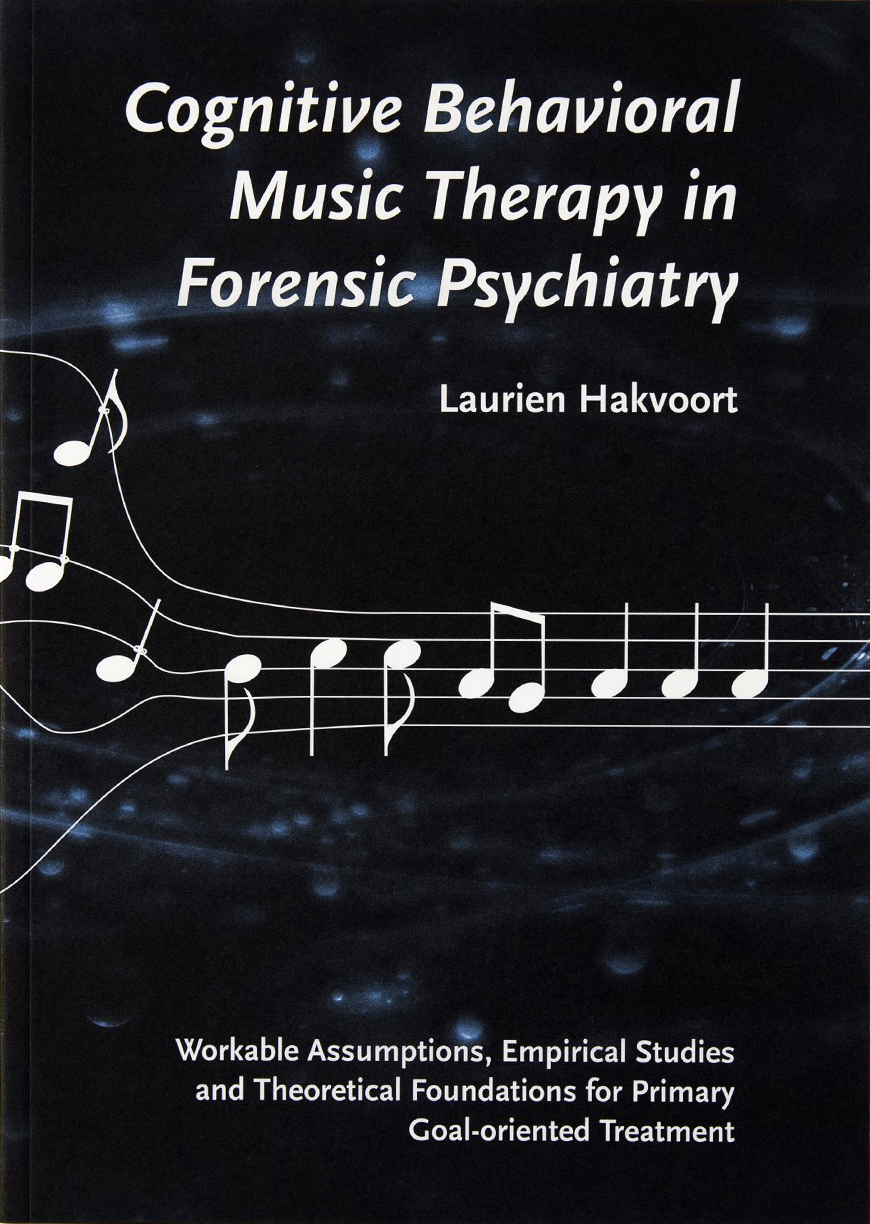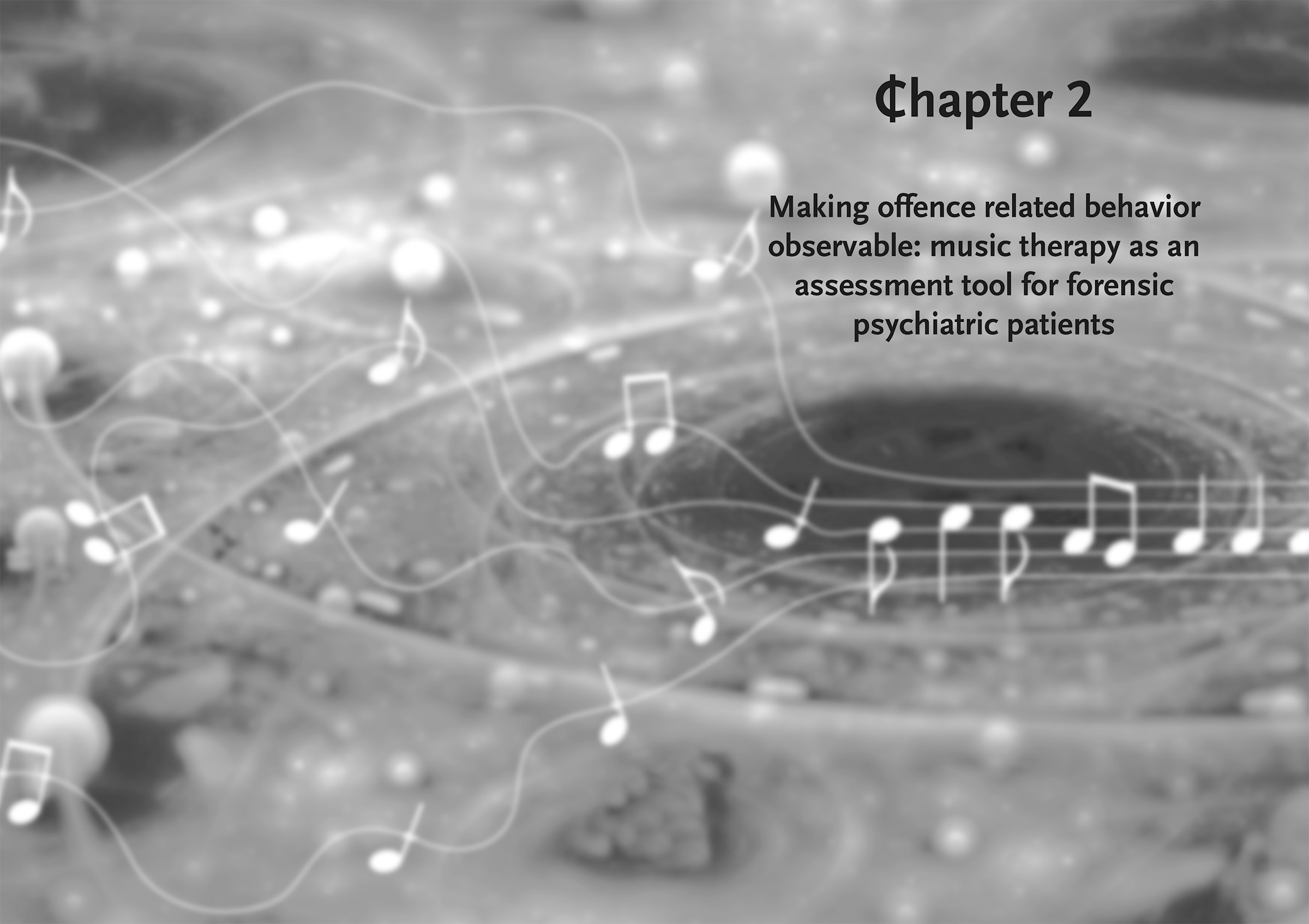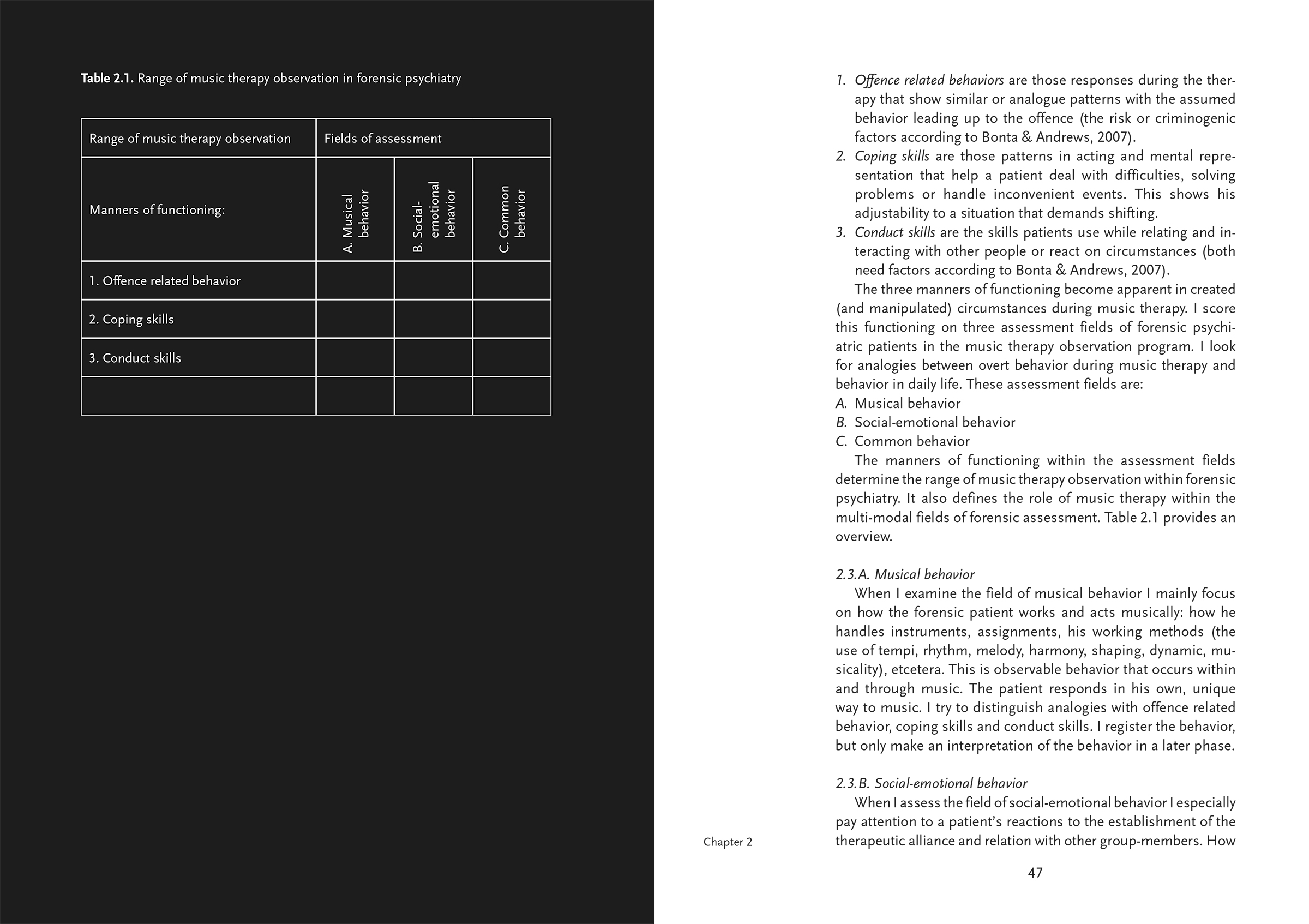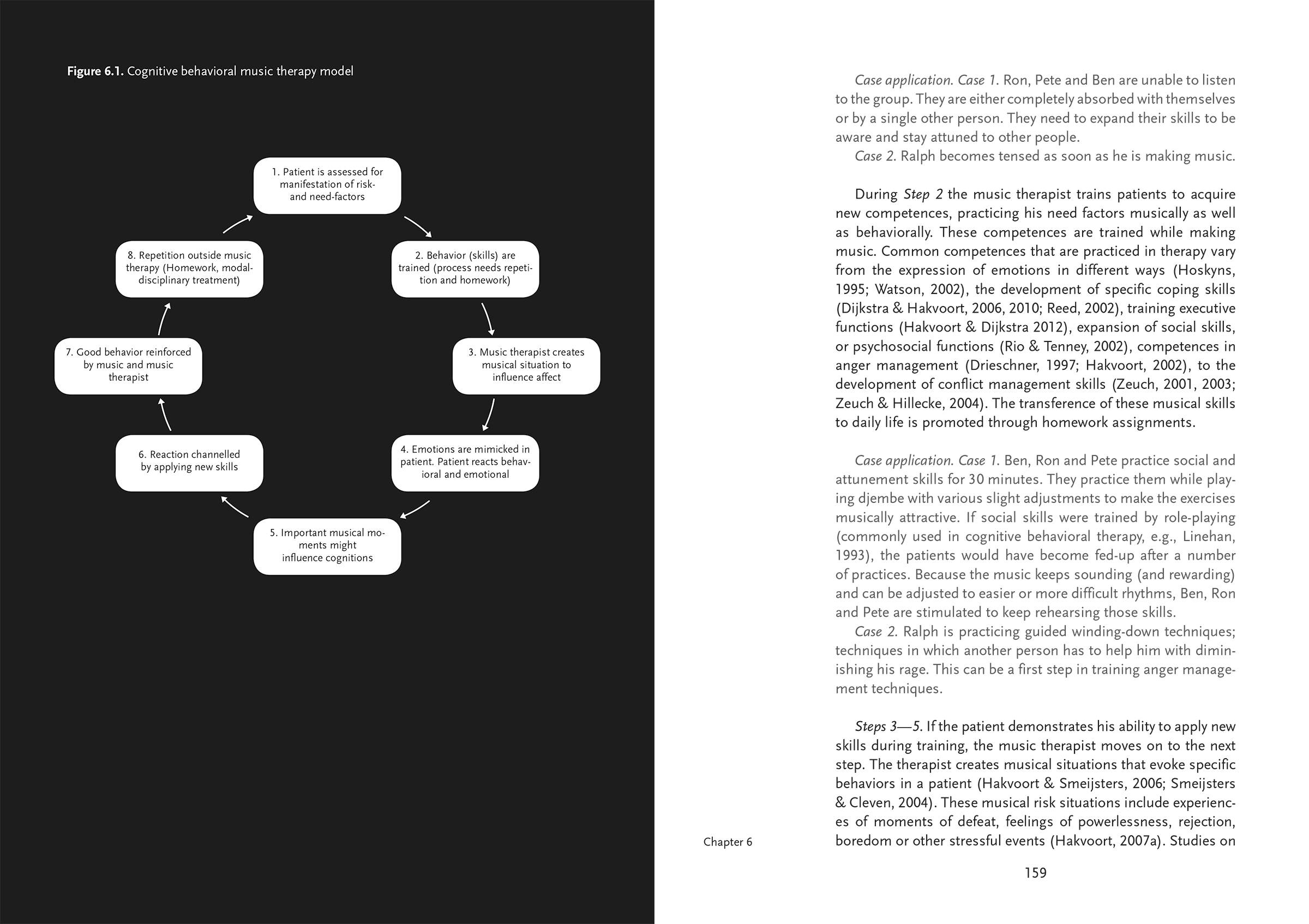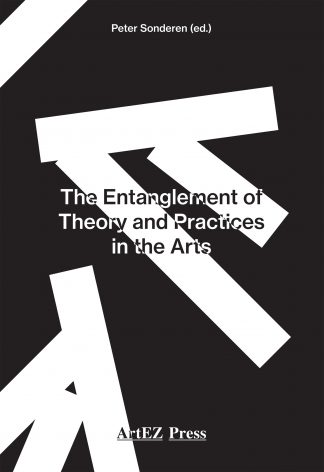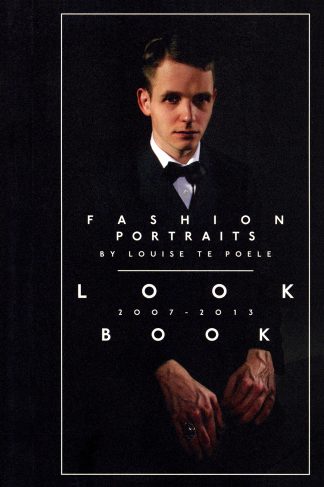Cognitive Behavorial Music Therapy in Forensic Psychiatry Workable Assumptions, Empirical Studies and Theoretical Foundations for Primary Goal-Oriented Treatment
Cognitive Behavorial Music Therapy in Forensic Psychiatry focusses on music therapy as part of multi-modal treatment in forensic psychiatry. Most offenders with a psychiatric or psychological disorder respond positively to music. From music psychology we know that music evokes emotions. Could music, then, be applied to regulate emotions of forensic psychiatric patients? From neurologic research we know that music has influence on cognitive functioning. Could music, then, be applied to train coping skills? Research also shows that music influences the human reward system and influence motivation. Could music, then, be applied therapeutically to motivate these patients to practice or rehearse new, positive behaviors? Building on evidence-based treatment in forensic psychiatry, this dissertation studies how music therapy could reduce risk principles and address need principles, while tapping into the responsivity of patients in this setting. The study presents theoretical explanations, case vignettes, and the results of explorative empirical research. Theoretical and empirical conditions are discussed under which music, if applied systematically and therapeutically, could influence positive behavioral changes in forensic psychiatric patients.
